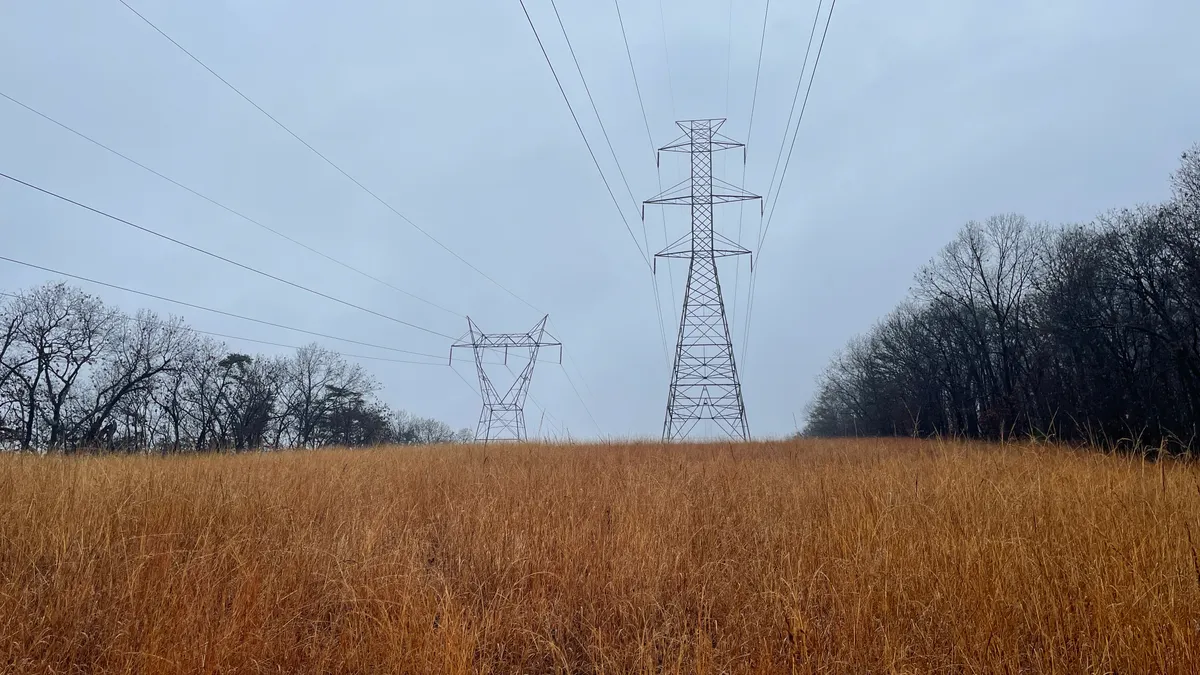Dive Brief:
-
A Southwest Power Pool proposal to standardize a pathway for transmission owners to build and profit from network upgrades needed to bring generators online is “patently deficient” and should be rejected outright, according to clean energy and environmental groups.
-
SPP’s proposal lacks any information on how the self-funding mechanism would be applied, when a binding decision would be made or how it would affect the grid operator’s existing interconnection queue, the American Clean Power Association (ACP) and other groups said in a joint filing at the Federal Energy Regulatory Commission on Friday.
-
Utilities and other transmission owners in SPP are already allowed to self-fund network upgrades, but there are no rules on how they can do that, the grid operator said in its Sept. 30 application at FERC. SPP wants the self-funding proposal to take effect Dec. 1.
Dive Insight:
About 1,400 GW of proposed projects, mainly solar, wind and energy storage, are sitting in interconnection queues across the United States. In many cases, the grid will need upgrades to safely bring them online.
Typically, interconnection customers pay for those upgrades themselves, but incumbent transmission owners have been seeking the right to pay for and profit from them.
In the latest action on the issue, SPP, which runs the grid from New Mexico to North Dakota, asked FERC to approve a proposal to enable transmission owners’ existing ability to self-fund network upgrades and to recover those costs —plus a return on the investment — from the interconnection customer.
The proposal is similar to one FERC approved for the Midcontinent Independent System Operator in 2020, according to SPP.
The proposed “facilities service agreement,” or FSA, and related tariff changes will provide clarity and uniformity by introducing a standard agreement for all network upgrades that transmission owners elect to self-fund, which will “promote and enhance informed decision making by interconnection customers,” SPP said in its application.
“SPP’s overall objective is to standardize the form of the FSA in an effort to promote administrative efficiency and contractual certainty,” the grid operator said.
Southwestern Public Service, an Xcel Energy utility, and ITC Great Plains, part of the ITC Holdings transmission company, support the SPP’s proposal, according to filings at FERC.
ACP, Advanced Power Alliance, the Solar Energy Industries Association, the Natural Resources Defense Council and the Sustainable FERC Project oppose the proposal.
SPP has provided so little information to support its proposal, including zero testimony, FERC should reject it outright and instead ask the grid operator to provide additional details, according to the groups.
“Given the scope of the change being proposed by SPP and the potential impact the proposal will likely have on market participants, the commission should not do SPP’s work for it through the deficiency letter process, especially where there are significant omissions from the record,” the groups said.
If FERC decides to consider the merits of SPP’s proposal, the agency should note that MISO’s self-funding framework for network upgrades is being challenged in court, the groups said.
Further, even if FERC decides transmission owners can charge interconnection customers directly for upgrades, the commission needs to square that right with the agency’s 2021 decision that New York transmission owners needed to show they were harmed financially if they weren’t allowed to self-fund certain projects, according to the groups.
The groups also called the proposal unjust and unreasonable because self-funding would be far more costly to generation developers than self-financing, with no corresponding benefit. Utility self-funding can increase a generator’s interconnection cost by 30% to 50%, which can kill potential projects, they said.















